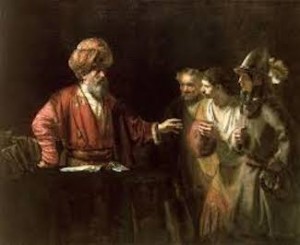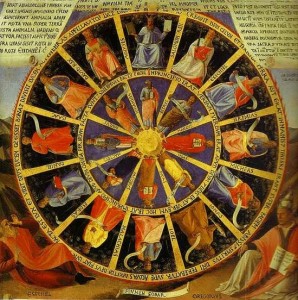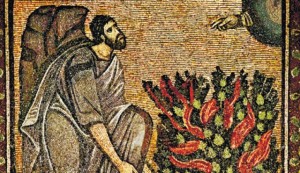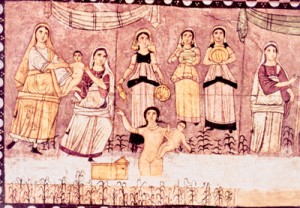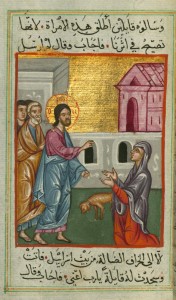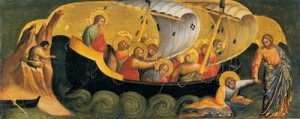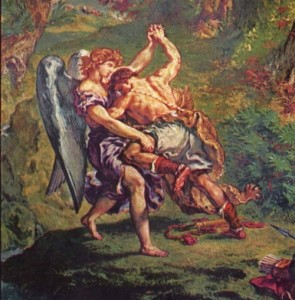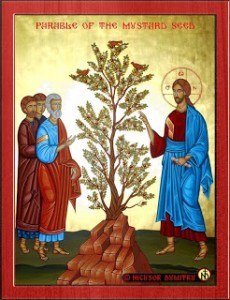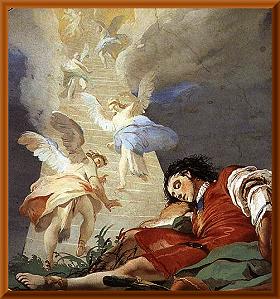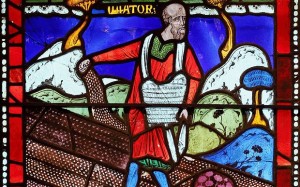Thoughts on Today’s Lessons for Sept. 14, 2014
First Reading: Exodus 14:19-31With a mysterious God-driven pillar of cloud and fire protecting their flank, the Israelites flee slavery in Egypt, hotly pursued by Pharaoh’s army. Now, in this familiar story, Moses – with God’s help – parts the waters of the sea so the Israelites may cross on dry ground. When they reach safety, Moses orders the water back, and Pharaoh’s entire army is drowned. This ancient story may seem violent and warlike, as befits the culture and custom of its time. But the message for Israel goes deeper: God promised to bring the people out of Israel with a mighty hand, and now the people’s history moves on toward Sinai, the Jordan and the Promised Land.
First Reading (Track 2): Genesis 50:15-21 (Track 2)
A theme of forgiveness runs through today’s readings. Last month, we saw Joseph’s brothers arrive in Egypt, fleeing famine, but terrified that their now-powerful brother might take revenge for the way they had treated him. Many years later, their father Jacob (Israel) has died, and now they are worried again. Without their father’s guarding hand, will Joseph turn on them? But Joseph, weeping, reassures them that just as God returns good for evil, so will Joseph forgive.
Psalm: Psalm 114
The Psalmist looks back at the events of the Exodus and sings out in praise over God’s powerful actions to save the people and bring them out from slavery to the land. God can make the sea flee and rivers turn back. God makes mountains and hills skip like rams and lambs. The earth trembles indeed at the presence of our God.
Psalm (Track 2): Psalm 103:1-13
Sunday’s Psalm picks up the theme of Joseph’s response to his brothers: God forgives us, God heals us, God redeems us, God’s love and mercy for us is steadfast. As a mother loves her children even when they misbehave, so God loves us and forgives us, offering us compassion, not the punishment that our bad behavior might seem to deserve.
Second Reading: Romans 14:1-12
Following last week’s assertion that loving our neighbor is the greatest commandment, fulfilling all the rest, Paul now goes on to remind us not to judge one another. Writing in the context of urging Rome’s Gentile and Jewish Christian communities to come together in grace and peace, Paul exhorts the people: Let’s not judge our neighbors if they do things differently than we do. Even if our neighbor makes us angry, we should forgive. Stand together in giving glory to God, and leave the judging to God.
Gospel: Matthew 18:21-35
Peter has an important question for Jesus: If someone keeps bothering me, just how many times do I have to forgive that person? Not just seven times, but 77 times, Jesus says, and we can be pretty sure that “77” really means “don’t stop forgiving, period.” And then Jesus tells one of those parables that really make us think. Who wouldn’t be outraged at the slave who, forgiven a crushing debt, turns around and cruelly fails to forgive another? The ungrateful slave gets what is coming to him. The lesson for us, perhaps, is best expressed in the words that Jesus taught us to pray: Forgive us our sins, as we forgive those who sin against us.”

